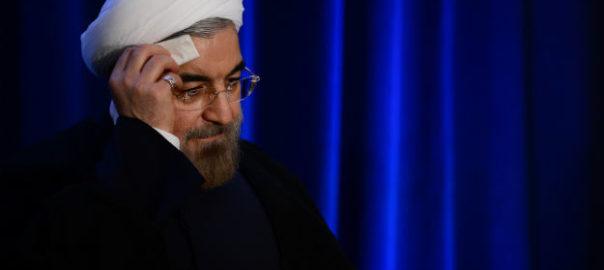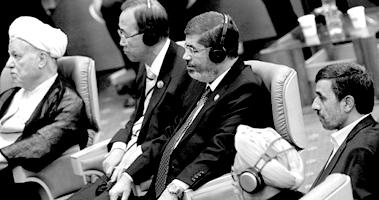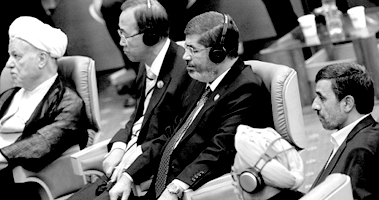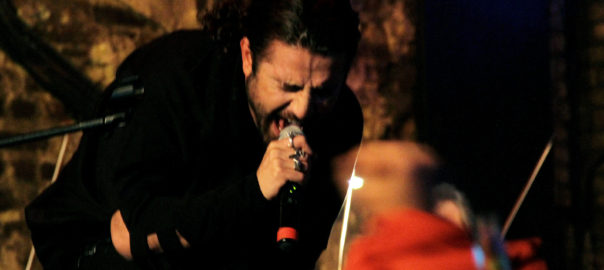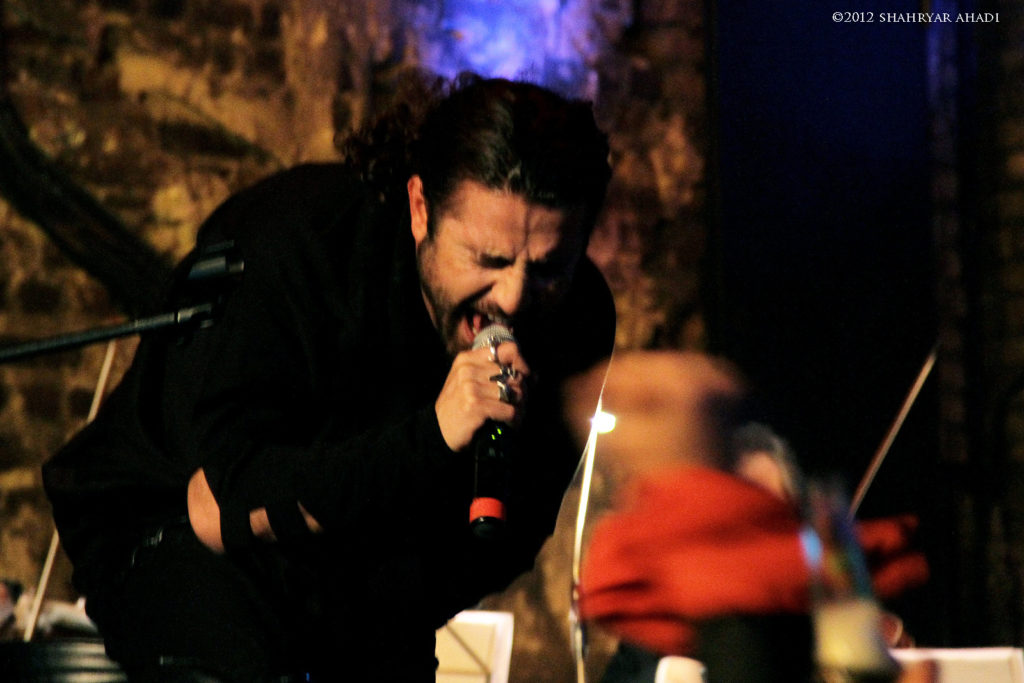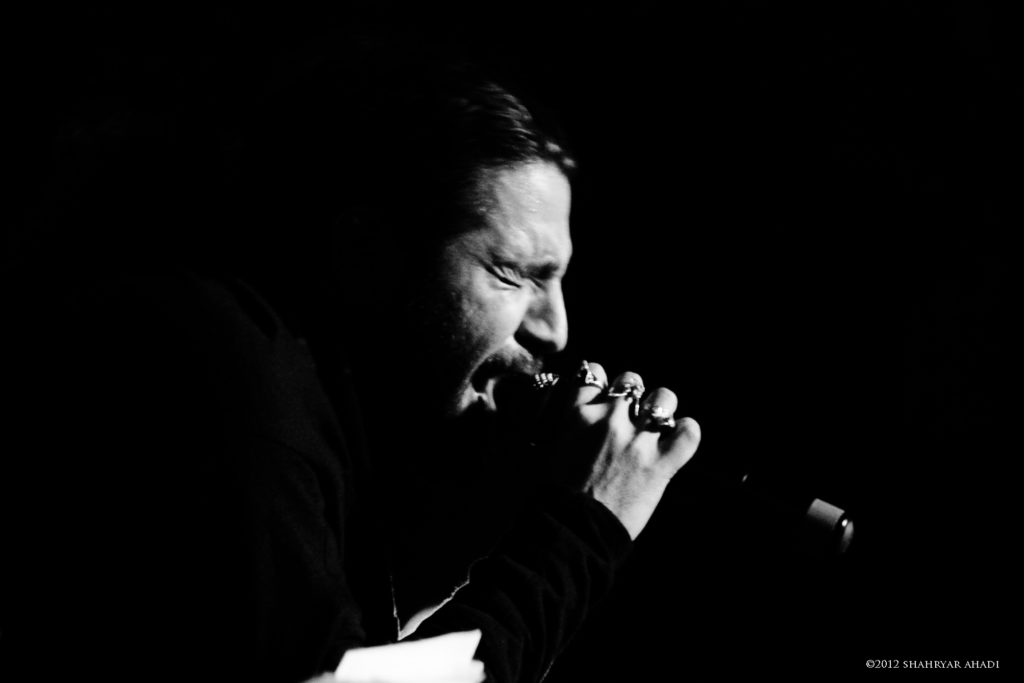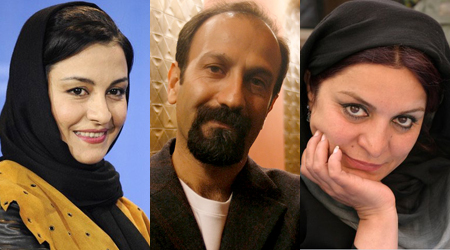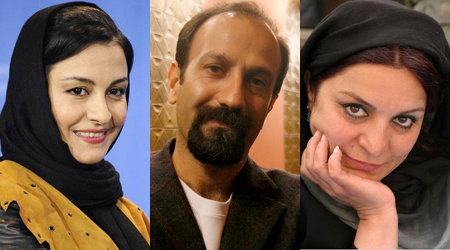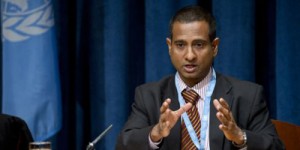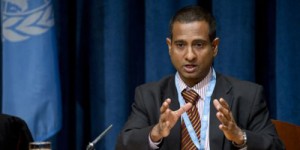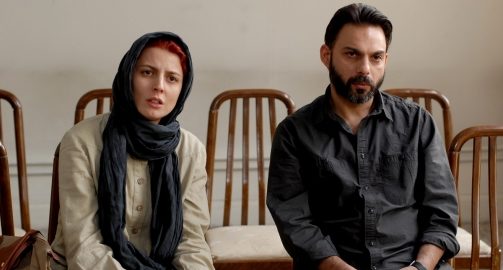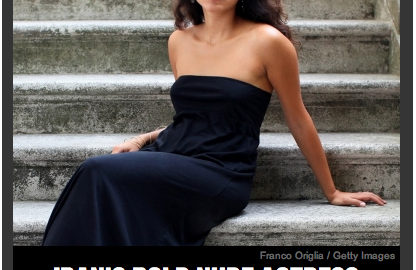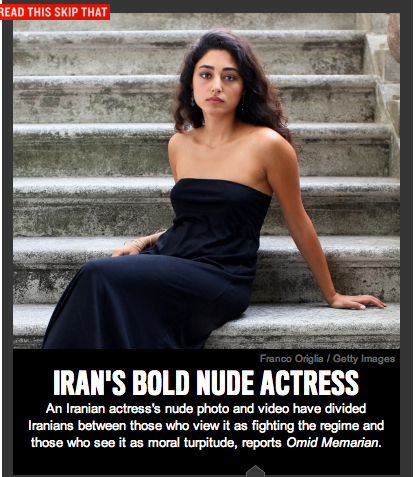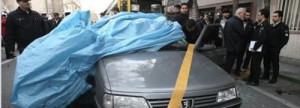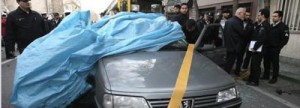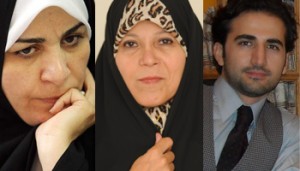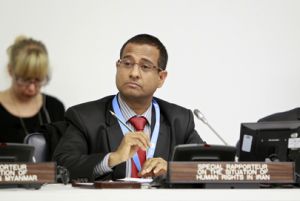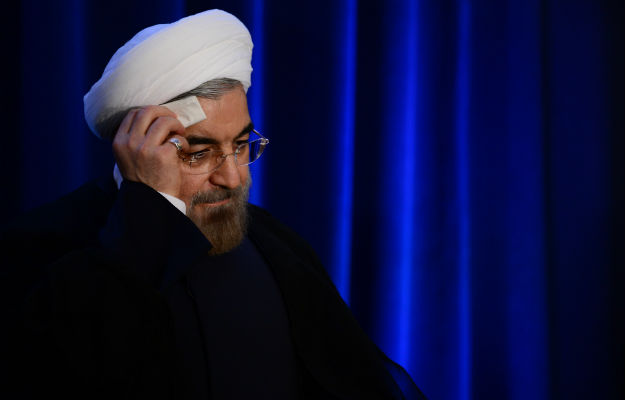
Does Iran’s president have the juice to sell his nuke deal at home?
(Foreign Policy, November 26 2013)After this weekend’s historic interim agreement between Iran and the world powers that comprise the P5+1, one question looms large: Can President Hassan Rouhani sell the deal, which essentially freezes the Islamic Republic’s nuclear program in exchange for financial relief, back home, where he must walk a thin line between skeptical hardliners and a restive public that is anxious for sanctions relief? Although the accord contains few specifics — and is intended as a prelude to a more comprehensive agreement — it represents a significant departure from the hardline policies of the Ahmadinejad era and leaves the president’s right flank exposed. It speaks volumes that Iranian Foreign Minister Mohammad Javad Zarif, more than anyone else, was committed to keeping the contents of the agreement secret until it had been signed.
Despite Rouhani’s commanding win in Iran’s July presidential election, his administration remains politically vulnerable at home. Before becoming the country’s foreign minister, Zarif spent more than six years wandering in the wilderness of President Mahmoud Ahmadinejad’s Foreign Ministry; Iranian conservatives accused him of having been too close to American officials in the early 2000s, when he was Iran’s ambassador to the United Nations — a considerable liability in Iran’s deeply anti-American political environment. Rouhani, meanwhile, is considered inexperienced in the executive branch, even if he has considerable policy experience. He is also the only Iranian president not to be affiliated with any political party (although he used to maintain loose ties with the conservative Combatant Clergy Association.) As a result, his political capital derives from three decades of friendship and cooperation with other Iranian politicians and from his overwhelming popular mandate — something that might easily melt away.
In the face of such uncertainty, even Supreme Leader Ayatollah Ali Khamenei has been hedging his bets, ensuring his own domestic success regardless of the outcome of the negotiations. At the same time that he supported the negotiating team after the previous round of talks, Khamenei continued to call the United States “unreliable” and an “oath-breaker.” Just before the Geneva talks began on Nov. 20, he unloaded verbally on Israel, calling the Jewish state a “dirty, rabid dog of the region.” Eight years ago, Khamenei said that his opinions closely paralleled those of Ahmadinejad. Now he is visibly distancing himself from the former president, who is one of the most hated political figures in Iran. Soon, Ahmadinejad will have the distinction of being the first president to appear in court to answer lawsuits filed against him.
By supporting the negotiating team on the one hand, and verbally attacking the United States and Israel on the other, the Supreme Leader has insulated himself from any responsibility for failure at the negotiating table, while leaving enough room to claim credit in the event of diplomatic success. In so doing, however, he has revealed the limits of his power. Unlike other dictators and kings in the region — strongmen whose success or failure has no effect on their political power — the Iranian leader neither enjoys high confidence nor holds absolute authority. Although he has the last word on all decisions in Iran, he must carefully hedge against failure by the negotiating team — a reality that is at odds with the image of the Supreme Leader presented by his supporters.
In part, Khamenei’s vulnerability is a function of the strength of the opposition movement. Among the Supreme Leader’s most vocal critics are Mohammad Khatami, Iran’s reformist former president, and Ali Akbar Hashemi Rafsanjani, the powerful head of Iran’s Expediency Council, who twice served as Iran’s president and as speaker of the Iranian Parliament before that. Both enjoy considerable followings in Iran — and both threw their support behind Rouhani in the presidential election. Other dissidents have been preemptively sidelined by the regime. Former Prime Minister Mir Hossein Mousavi and Mehdi Karroubi, a cleric close to the late Ayatollah Khomeini and former Speaker of the Parliament — both presidential candidates in 2009 — have been under house arrest for more than 1,000 days without charges. The fact that the Supreme Leader has chosen to hold but not charge these figures hints at just how threatening they are to the regime.
The weakened position of hardliners, meanwhile, was on display during this summer’s presidential campaign. During the election debates, Saeed Jalili, Ahmadinejad’s nuclear negotiator and allegedly Khamenei’s chosen candidate, was sharply criticized by the other six presidential hopefuls, including Ali Akbar Velayati, the Supreme Leader’s advisor on international affairs, for his failure to produce results in the nuclear negotiations and for inviting multiple rounds of economic sanctions against Iran. Rouhani, meanwhile, scored points with his quip that the “centrifuges must turn, but so should the wheel of people’s livelihoods,” a not-so-veiled swipe at Jalili and a reminder that Khamenei is far from untouchable. Against this backdrop, the failure of nuclear negotiations — or a compromise that might incite the wrath of the conservatives, the military, and security forces — could cost the Supreme Leader dearly, calling his wisdom and competence into question.
As if to remind Khamenei of this fact, the radical conservative newspaper Kayhan, whose editor-in-chief was appointed by the Supreme Leader himself, has consistently reported on statements made by members of the U.S. Congress and by Israeli officials, doubting that negotiations could render results favorable to Iran. Moreover, as soon as details of the agreement were published — and while most of the country’s other newspapers were reporting on an Iranian “victory” or the Iranian people’s joy over the agreement — Kayhan published the headline: “The U.S. Was Not Trustworthy: The Geneva Agreement Lasted Only One Hour.” In the article, the newspaper accused U.S. Secretary of State John Kerry of “violating the agreement by denying Iran’s right to uranium enrichment.” On Nov. 25, Kayhan reported that a group of Iranian lawmakers were demanding to summon Rouhani and Zarif for questioning about the details of the negotiation.
In the face of such obstructionism by extremists, Rouhani must draw on his biggest source of political capital to move the negotiations forward: the support of millions of voters who have applauded the interim agreement. On the night of Nov. 23, millions of Iranians stayed awake to follow the Geneva developments live on BBC Persian television. By and large, they weren’t watching to find out if their right to enrich uranium would be recognized — or whether the Arak and Fordo nuclear plants would be able to continue their operations. Instead, Iranians wanted to know if the West’s economic sanctions would be lifted. Though it was only a small step toward bringing Iran in from the cold, the Geneva agreement demonstrated that Rouhani is moving towards fulfilling the will of the people.
But the lifting of sanctions was only one of Rouhani supporters’ two main demands — both of which partially propelled the president into office in June. The other demand was the expansion of political and civil rights, as well as the release of political prisoners like former presidential candidates Mehdi Karroubi and Mir Hossein Mousavi. The enthusiasm of marginalized supporters of the two major reformist candidates in the 2009 election generated powerful momentum for Rouhani, ultimately delivering him the election.
But over the past several months, the president has focused on the country’s nuclear dossier, while keeping silent on his promises of political freedom. As a result, hundreds of political prisoners detained after the 2009 election are still behind bars, freedom of expression remains seriously restricted, and convicts are being hanged at an even higher rate than in the Ahmadinejad era. And while Rouhani has taken an important first step forward on the nuclear issue, his supporters — his main source of political capital — expect him to deliver on his promises in the political arena.
When Zarif returned to Iran on Nov. 23, thousands of people welcomed him to Tehran by chanting slogans demanding the release of political prisoners. “After the Geneva agreement, it is Mir Hossein [Mousavi]’s turn,” and “Greetings to the diplomat, hello to reforms,” are just two of the slogans people chanted upon the foreign minister’s return.
In order to protect the hard-won nuclear agreement, maintain his widespread popular support, and successfully continue the negotiations over the next six months, Rouhani must take steps to deliver on his campaign pledge to improve the human rights situation in Iran. Just as his foreign minister has access to Facebook, Twitter, and YouTube — which he uses as diplomatic tools — Rouhani should make them available to everyone.
The international community’s push to end to internal repression can be a great asset to Rouhani, should he decide to make good on his campaign promise. In recent years, activists inside and outside of Iran have cheered the international community’s efforts to highlight human rights abuses. External pressure gives Rouhani additional leverage because in the midst of a crucial nuclear negotiation, the last thing the Iranian government wants is an international embarrassment over its human rights situation. In September, someone in Rouhani’s inner circle told me that “in order to make changes in regards to human rights there should be social pressure,” adding that “the other side [hardliners] have media, power, money, arms…so if you want change, demand it, and demand it publically, forcefully.”
Though opening up the political sphere would undoubtedly anger political conservatives, it would also strengthen Rouhani’s position domestically by boosting his popular support. In turn, this would reduce the chances that conservative forces would be able to scuttle the nuclear deal. Ultimately, Rouhani cannot choose between the nuclear issue and human rights. Nor can he attempt to tackle one after the other. If Rouhani is going to turn this weekend’s historic interim agreement into something more lasting, it will have to be accompanied by an equally historic opening of Iran’s political sphere.

